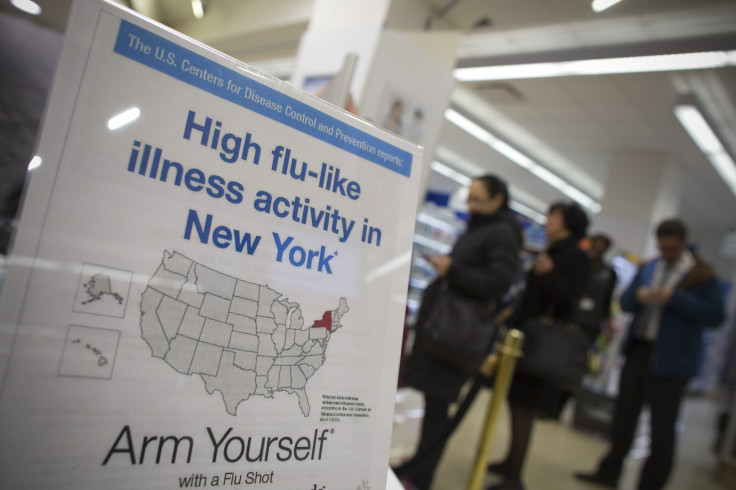Flu Season 2015: Record Number Of Hospitalizations Among Americans 65 And Older

A record number of elderly Americans have been hospitalized during the current flu season that has killed more than 80 children and remained above the epidemic threshold across the U.S., according to the U.S. Centers for Disease Control and Prevention. The hospitalization rate this flu season for people 65 or more years of age was about 217 per 100,000, a huge jump from about 85 per 100,000 at the end of the last flu season, the CDC reported.
“We are seeing more serious illness in elderly folks this year, even more so than in 2012-2013,” Dr. Michael Jhung, a medical officer in the CDC’s influenza division, said in a statement, according to HealthDay. Health officials blamed the rise in elderly Americans being hospitalized to the particularly severe nature of this year’s dominant flu strain, H3N2. “That happens every time we have an H3N2 year, and this year happens to be the worst we’ve seen,” Jhung said.
An unforeseen mutation early in the 2014-2015 influenza season led to the record number of hospitalizations across the U.S. as a result of the severity of the illnesses. The vaccine developed to protect against the virus was only about 23 percent effective because of genetic drifting -- changes in the season’s dominant flu virus that were not accounted for in the composition of the vaccine.
Most Americans 65 or older who were hospitalized had “at least one reported underlying medical condition,” NBC News cited the CDC as noting. “The most commonly reported were cardiovascular disease, metabolic disorders and obesity.”
Despite the spike in hospitalizations among elderly Americans, health officials said the flu season has peaked and is now slowing down. Last week, 32 states saw “widespread” flu activity, a drop from 40 the week before, according to the Associated Press. However, flu activity could continue for several more weeks, the CDC said.
© Copyright IBTimes 2024. All rights reserved.






















